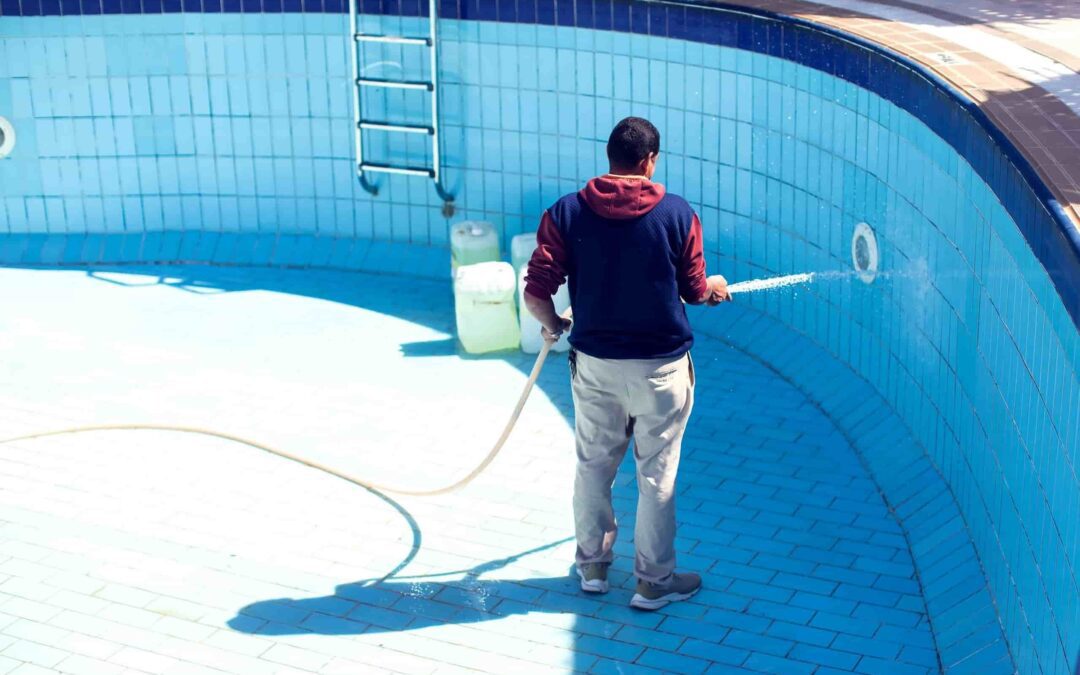Time for some pool care wisdom: waterproofing is a game-changer. Waterproofing might not have the glamour of glass tiles or the fun of a mermaid mosaic, but it’s the unsung hero in pool maintenance. Doing waterproofing right is your best strategy to prolong the life of the swimming pool.
- Needs less maintenance after waterproofing
- The swimming pool will last more than 25 years
- Keep groundwater away from your swimming pool
The swimming pool needs less maintenance after waterproofing
Your fancy pool loses its appeal quickly when the concrete starts showing cracks and pits. The swimming pool messes with your whole property’s vibe when it doesn’t get enough maintenance on time. Waterproofing is more than just about looks; it keeps your pool looking good with less maintenance. When waterproofing with DROPEX, you can choose from a bunch of colors and styles to jazz up your swimming pool. Mix some sealants with swimming pool tiles, and you’ve got a load of visual options!
- Make your swimming pool last more than 25 years
A standard pool can keep the good times rolling for a solid 25 years or more with proper care. But if you overlook issues like peeling paint, cracks, or water problems, you might end up coughing up cash for a replacement sooner than planned or dealing with the equally costly removal option. Play it safe and throw on a new waterproofing seal every one to three years, and you’ll likely dodge most problems, possibly even outlasting the swimming pool installers’ promised timeframe.
- Keep groundwater away from messing with your pool walls
Concrete lets water in because it’s like a sponge structure at the microscopic level. It’s no big deal on driveways or patios where water is just passing through. But if your pool is constantly soaking in water and chemicals, that concrete could be thrown in the towel early, giving you cracks, flakes, and peels. Slap on a waterproof layer, though, and your concrete can handle the daily grind. The best waterproofing for swimming pool keeps groundwater from messing with your pool walls, wrecking the concrete, and messing up your water. As a bonus, sealing your pool keeps costly leaks away and protects your greenery from pool chemicals.
If you ask the pros who are involved with swimming pool maintenance, they’ll tell you that cement coatings and waterproof barriers are like a match made in heaven for concrete. Chemistry plays a big role in the swimming pool, and with those polymer bonding agents in the mix, they stick together like glue. For your swimming pool, you get to play around with finishes like plaster, overlays, and adhesives. These waterproofing materials will latch on well to the swimming pool cement wall.
Whether you’re splurging on a new pool or giving an old one a glow-up, these cement coatings and waterproof barriers are the real winners. The nifty thing is that they don’t get bothered by moisture vapor transmission (MVT), which is just how quickly water vapor moves through stuff at a specific temp and humidity. These coatings from DROPEX are like the concrete’s partners in crime. After applying the waterproofing, they link up with the calcium and lime, creating a solid waterproof barrier.
These waterproof coatings can be slapped on just days after you pour the concrete or lay down the gunite in the swimming pool, making everything happen way quicker. Now, if you’re messing with pure polymer systems, you’ve got to give the concrete a solid 28 days to kick back before you can apply, or it might struggle with moisture vapor transmission (MVT).
Even though the best waterproofing for swimming pool comes with a guarantee, you have to put it to the test. Once that waterproofing layer in the swimming pool is all set, make sure your pool is waterproof before diving into the tiling. Pros recommend doing a flood or phase test about a week after the waterproofing cures to catch any leaks. If you spot leaks in the swimming pool, drain the pool ASAP and fix things up pronto.


